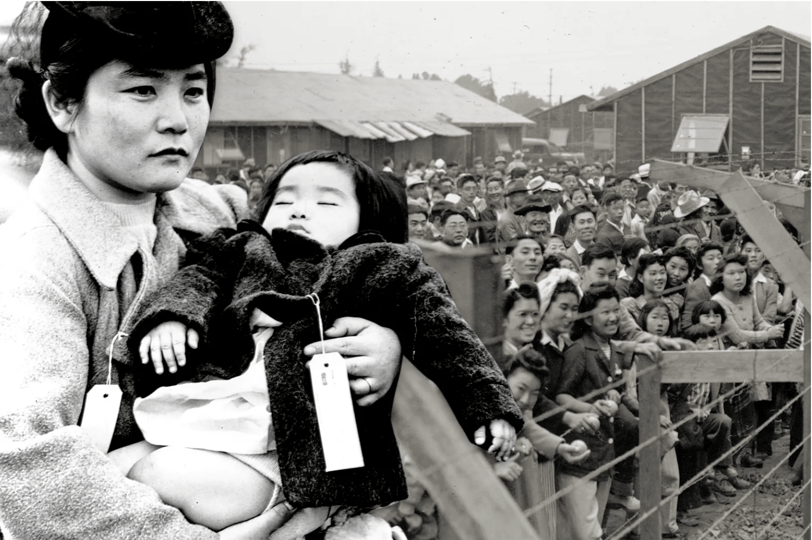Racism, History and the Alien Enemies Act
How Trump is digging in the ugliest sewers of our past to push his xenophobic agenda.
LETTERS TO THE EDITOR
Ron Day
3/16/20253 min read


The Alien Enemies Act
The Alien Enemies Act was last invoked in 1942 by Franklin D. Roosevelt. It was based on the long history of anti-Japanese sentiment and discrimination - mainly on the West Coast. After Pearl Harbor, anti-Japanese sentiment increased - leading to calls for their removal for national security. The media of the day amplified the anti-Japanese bigotry by portraying Japanese Americans as a threat. In 1942, 93% of Americans supported the removal of Japanese "immigrants," and 59% supported the removal of Japanese American citizens.
With overwhelming public demand for action, Roosevelt issued the infamous Executive Order 9066 (under the auspices of the Alien Enemies Act) authorizing the internment of Japanese Americans.
At the time, the Japanese American Citizens League, faced with enormous public enmity, urged their members to accept the constitutionality of the exclusion order advising approximately 120,000 Japanese Americans to go peacefully into the American version of a concentration prison, complete with armed guards and centers.
Citizens and leaders from inland states that were forced to accept the Japanese American Citizen prisoners demanded they be 'Locked Up" in return for receiving them.
The Supreme Court
The Supreme Court heard the challenge to this in the case of Korematsu v. United States but found no sympathy in the courts at the time of their imprisonment for the "crime" of being of Japanese descent.
The consequences of this discrimination did not end after the war but
continued for years as many struggled to rebuild their lives.
It wasn't until 1988 that Congress passed the Civil Liberties Act, acknowledging the injustice of internment and providing reparations to those who were incarcerated.
2018
Even worse, it wasn't until 2018 that the Supreme Court recognized the immense error of their precedent as a side note in Trump v Hawaii - where Justice John Roberts plainly stated: "The forcible relocation of U. S. citizens to concentration camps, solely and explicitly based on race, is objectively unlawful and outside the scope of Presidential authority."
Unfortunately, in logic chillingly similar to that used in the Korematsu case, he went on to say:
"But it is wholly inapt to liken that morally repugnant order to a facially neutral policy denying certain foreign nationals the privilege of admission. See post, at 26–28. The entry suspension is an act that is well within executive authority and could have been taken by any other President—the only question is evaluating the actions of this particular precedent in promulgating an otherwise valid Proclamation."
The key phrase in this nonsensical opinion is "facially neutral" since the court is not now, nor ever has been, bound to accept lies at their face value. The case's underlying facts made clear that Trump was using "facially neutral" statements to cover up hate and animus that was part of the public record and not in dispute.
To paraphrase the dissent:
As here, the exclusion order was rooted in dangerous stereotypes about, inter alia, a particular group's supposed inability to assimilate and desire to harm the United States. As here, the government was unwilling to reveal its own intelligence agencies' views of the alleged security concerns to the very citizens it purported to protect. As here, there was overwhelming evidence that impermissible hostility and animus motivated the government's policy.
We recognize the need for great deference to the Executive Branch in the context of national security, but it is essential that there be definite limits to the president's discretion," as individuals must not be left impoverished of our Constitution's rights on a plea of military necessity that has neither substance nor support.
To recap what happened the last time, the court erroneously recognized the Alien Enemies Act.
Two Months after the Japanese attack on Pearl Harbor (and Congress had declared war on Japan), President Franklin Roosevelt signed Executive Order 9066 requiring Japanese-Americans to move into "relocation camps".
A Japanese-American Citizen living in San Leandro, Fred Korematsu, was arrested for choosing to stay at his residence rather than obey the order to relocate. After his conviction for violating the order, he appealed to the Ninth Circuit, which affirmed Korematsu's conviction.
In an opinion written by Justice Black, the court ruled against Korematsu. The majority found that the Executive Order did not show racial prejudice but rather responded to the strategic imperative of keeping the U.S. secure from invasion. The court relied heavily on a 1943 decision, Hirabayashi v. U.S., which addressed similar issues.
Justice Jackson dissented, arguing that the exclusion order legitimized racism that violated the Equal Protection Clause of the Fourteenth Amendment. Justice Roberts finally recognized this descent in 2018.
No Surprise
It should come as no surprise that this attempt to use the "Alien Enemies Act" is nothing more than another racist order attempting to circumvent civil liberties and human rights to promote the Trump brand. Hopefully, Justice Roberts won't allow "facially legitimate" reasoning to prevail this time.
